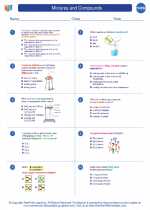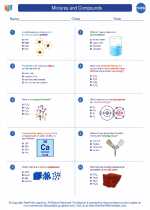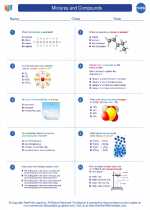Surface
In chemistry, the term "surface" refers to the outermost layer or boundary of a material or substance. Understanding surface properties is crucial in various chemical processes, including reactions, adsorption, and surface tension.
Key Concepts
- Surface Area: The measure of the total area of the exposed surface of a solid substance. It plays a vital role in determining the rate of reactions and adsorption processes.
- Surface Tension: The force acting on the surface of a liquid that tends to minimize the surface area. It is responsible for phenomena such as capillary action and the formation of droplets.
- Adsorption: The adhesion of atoms, ions, or molecules from a gas, liquid, or dissolved solid to a surface. This process is significant in catalysis and purification processes.
- Surface Energy: The energy required to increase the surface area of a substance. It influences the behavior of materials at the nanoscale and is a critical factor in determining the stability of colloidal systems.
Study Guide
To understand the concept of "surface" in chemistry, it is essential to focus on the following aspects:
- Define and differentiate between terms such as surface area, surface tension, adsorption, and surface energy.
- Explore the relationship between surface area and the rate of chemical reactions, particularly in heterogeneous catalysis and solid-state reactions.
- Investigate the role of surface tension in various phenomena, such as the behavior of surfactants and the formation of interfaces between immiscible liquids.
- Examine real-world applications of adsorption processes, such as in the purification of drinking water and the removal of pollutants from industrial effluents.
- Discuss the implications of surface energy in the design and formulation of nanomaterials, including nanoparticles, nanocomposites, and thin films.
By mastering the concept of "surface" in chemistry and its related principles, you can gain a deeper understanding of various chemical phenomena and their practical implications.
[Surface] Related Worksheets and Study Guides:
.◂Chemistry Worksheets and Study Guides High School. Mixtures and Compounds
Worksheet/Answer key Mixtures and Compounds
Mixtures and Compounds  Worksheet/Answer key
Worksheet/Answer key Mixtures and Compounds
Mixtures and Compounds  Worksheet/Answer key
Worksheet/Answer key Mixtures and Compounds
Mixtures and Compounds 

 Worksheet/Answer key
Worksheet/Answer key
 Worksheet/Answer key
Worksheet/Answer key

The resources above cover the following skills:
Chemistry II
Properties of Matter
Develop and use models to explain the differences between chemical compounds using patterns as a method for identification.
Use mathematical representations to quantify matter through the analysis of patterns in chemical compounds.